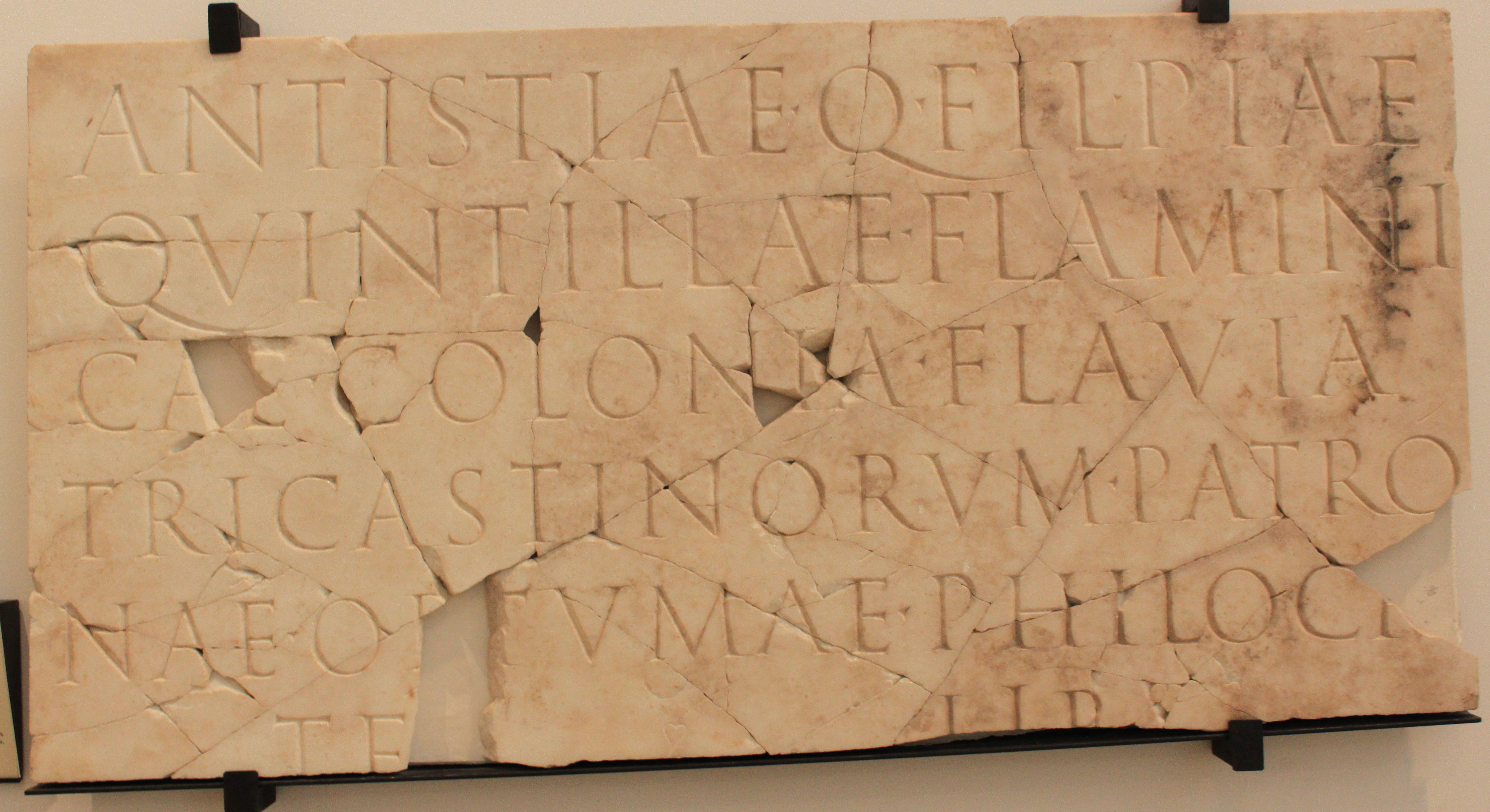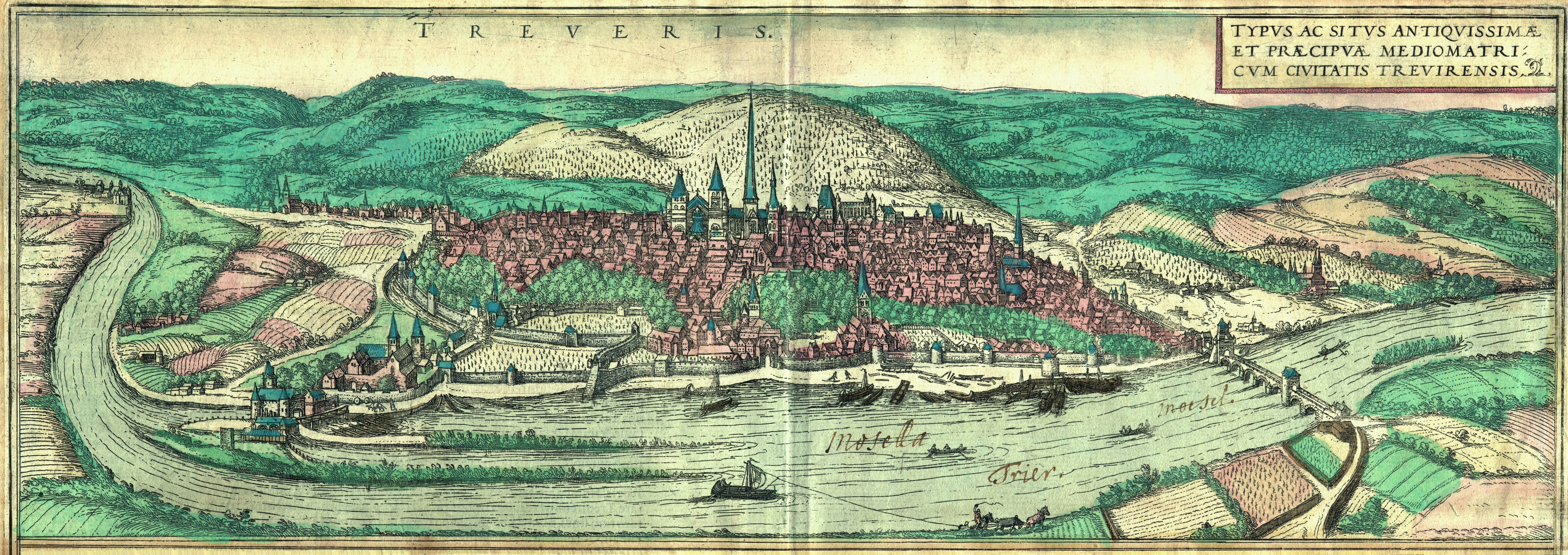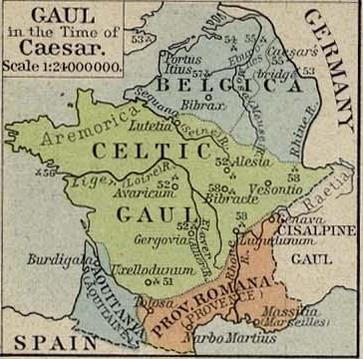|
Gallia Viennensis
Viennensis or Gallia Viennensis was a Late Roman province that derived its name from its capital Vienna (modern day Vienne, Isère), a Roman city, first located in Gallia Narbonensis. Vienna was first given the rank of colonia by Caesar, after his Gallic campaigns in 58 BCE and 52 BCE, as a colony of veterans (''Colonia Julia Viennensium''); Augustus reinstated the rights after the romanized Allobroges had revolted which led to a temporary loss of the title; Caligula eventually named it ''Colonia Julia Augusta Florentia Viennensium'' in 40 CE. During the reorganization of the provinces under the tetrachy of Diocletian in the early 4th century, Vienna then became the capital of the province of Viennensis with the tribes of the Allobrogi, Segovellauni, Helvii, Tricastini, Vocontii and Cavari. In the 5th century the province was further divided into Gallia Viennense I, with its capital Vienne, and Gallia Viennense II, with its capital Arles. References See also *Septem Provinci ... [...More Info...] [...Related Items...] OR: [Wikipedia] [Google] [Baidu] |
History Of The Roman Empire
The history of the Roman Empire covers the history of ancient Rome from the fall of the Roman Republic in 27 BC until the abdication of Romulus Augustulus in AD 476 in the West, and the Fall of Constantinople in the East in AD 1453. Ancient Rome became a territorial empire while still a republic, but was then ruled by Roman emperors beginning with Augustus (), becoming the Roman Empire following the death of the last republican dictator, the first emperor's adoptive father Julius Caesar. Rome had begun expanding shortly after the founding of the Roman Republic in the 6th century BC, though it did not expand outside the Italian Peninsula until the 3rd century BC. Civil war engulfed the Roman state in the mid 1st century BC, first between Julius Caesar and Pompey, and finally between Octavian and Mark Antony. Antony was defeated at the Battle of Actium in 31 BC. In 27 BC, the Senate made Octavian ''imperator'' ("commander") thus beginning the Principate, the first epoch of Roman ... [...More Info...] [...Related Items...] OR: [Wikipedia] [Google] [Baidu] |
Tricastini
The Tricastini were a small Gallic tribe dwelling in the modern Tricastin region, near present-day Saint-Paul-Trois-Châteaux, during the Iron Age and the Roman period. The Tricastini were probably one of the most ancient Celtic tribes of Gaul. They are first mentioned in Livy's legendary narration of Bellovesus' expedition from Gaul into Italy, then in his historical account of Hannibal's crossing of the Alps in 218 BC, when the Tricastini let the Carthaginian troops move across their land. After 121 BC, their territory was annexed to the province of Gallia Transalpina by the Roman Republic. By the 1st century AD, the Tricastini were part of the Cavarian confederation. Name Attestations They are mentioned as ''Tricastinos'' by Livy (late 1st century BC),. ''Ab Urbe Condita Libri''5:34 and as ''Trikastínoi'' (Τ� ... [...More Info...] [...Related Items...] OR: [Wikipedia] [Google] [Baidu] |
States And Territories Disestablished In The 5th Century
State may refer to: Arts, entertainment, and media Literature * ''State Magazine'', a monthly magazine published by the U.S. Department of State * ''The State'' (newspaper), a daily newspaper in Columbia, South Carolina, United States * ''Our State'', a monthly magazine published in North Carolina and formerly called ''The State'' * The State (Larry Niven), a fictional future government in three novels by Larry Niven Music Groups and labels * States Records, an American record label * The State (band), Australian band previously known as the Cutters Albums * ''State'' (album), a 2013 album by Todd Rundgren * ''States'' (album), a 2013 album by the Paper Kites * ''States'', a 1991 album by Klinik * ''The State'' (album), a 1999 album by Nickelback Television * ''The State'' (American TV series), 1993 * ''The State'' (British TV series), 2017 Other * The State (comedy troupe), an American comedy troupe Law and politics * State (polity), a centralized political organizatio ... [...More Info...] [...Related Items...] OR: [Wikipedia] [Google] [Baidu] |
States And Territories Established In The 4th Century
State may refer to: Arts, entertainment, and media Literature * ''State Magazine'', a monthly magazine published by the U.S. Department of State * ''The State'' (newspaper), a daily newspaper in Columbia, South Carolina, United States * ''Our State'', a monthly magazine published in North Carolina and formerly called ''The State'' * The State (Larry Niven), a fictional future government in three novels by Larry Niven Music Groups and labels * States Records, an American record label * The State (band), Australian band previously known as the Cutters Albums * ''State'' (album), a 2013 album by Todd Rundgren * ''States'' (album), a 2013 album by the Paper Kites * ''States'', a 1991 album by Klinik * ''The State'' (album), a 1999 album by Nickelback Television * ''The State'' (American TV series), 1993 * ''The State'' (British TV series), 2017 Other * The State (comedy troupe), an American comedy troupe Law and politics * State (polity), a centralized political organizatio ... [...More Info...] [...Related Items...] OR: [Wikipedia] [Google] [Baidu] |
5th-century Disestablishments In The Roman Empire
The 5th century is the time period from 401 ( CDI) through 500 ( D) ''Anno Domini'' (AD) or Common Era (CE) in the Julian calendar. The 5th century is noted for being a period of migration and political instability throughout Eurasia. It saw the collapse of the Western Roman Empire, which came to an end in 476 AD. This empire had been ruled by a succession of weak emperors, with the real political might being increasingly concentrated among military leaders. Internal instability allowed a Visigoth army to reach and ransack Rome in 410. Some recovery took place during the following decades, but the Western Empire received another serious blow when a second foreign group, the Vandals, occupied Carthage, capital of an extremely important province in Africa. Attempts to retake the province were interrupted by the invasion of the Huns under Attila. After Attila's defeat, both Eastern and Western empires joined forces for a final assault on Vandal North Africa, but this campaign was a ... [...More Info...] [...Related Items...] OR: [Wikipedia] [Google] [Baidu] |
4th-century Establishments In The Roman Empire
The 4th century (per the Julian calendar and Anno Domini/Common era) was the time period which lasted from 301 ( CCCI) through 400 ( CD). In the West, the early part of the century was shaped by Constantine the Great, who became the first Roman emperor to adopt Christianity. Gaining sole reign of the empire, he is also noted for re-establishing a single imperial capital, choosing the site of ancient Byzantium in 330 (over the current capitals, which had effectively been changed by Diocletian's reforms to Milan in the West, and Nicomedeia in the East) to build the city soon called Nova Roma (New Rome); it was later renamed Constantinople in his honor. The last emperor to control both the eastern and western halves of the empire was Theodosius I. As the century progressed after his death, it became increasingly apparent that the empire had changed in many ways since the time of Augustus. The two emperor system originally established by Diocletian in the previous century fell int ... [...More Info...] [...Related Items...] OR: [Wikipedia] [Google] [Baidu] |
Augusta Treverorum
Trier in Rhineland-Palatinate, whose history dates to the Roman Empire, is often claimed to be the oldest city in Germany. Traditionally it was known in English by its French name of Treves. Prehistory The first traces of human settlement in the area of the city show evidence of linear pottery settlements dating from the early Neolithic period. Since the last pre-Christian centuries, members of the Celtic tribe of the Treveri settled in the area of today's Trier. Roman Empire The Romans under Julius Caesar first subdued the Treveri in 58 to 50 BC. No later than 16 BC, at the foot of the hill later christened the Petrisberg, upon which a military camp had been set up in 30 BC and abandoned again a few months later, the Romans founded the city of ("City of Augustus in the land of the Treveri"), which has a claim to being the oldest city in Germany. The honour of being named after the Emperor was only locally shared by Augsburg and Augst in northern Switzerland. Followi ... [...More Info...] [...Related Items...] OR: [Wikipedia] [Google] [Baidu] |
Lugdunum
Lugdunum (also spelled Lugudunum, ; modern Lyon, France) was an important Roman city in Gaul, established on the current site of Lyon. The Roman city was founded in 43 BC by Lucius Munatius Plancus, but continued an existing Gallic settlement with a likely population of several thousands. It served as the capital of the Roman province of Gallia Lugdunensis and was an important city in the western half of the Roman Empire for centuries. Two emperors, Claudius and Caracalla, were born in Lugdunum. In the period 69–192 AD, the city's population may have numbered 50,000 to 100,000, and possibly up to 200,000 inhabitants. The original Roman city was situated west of the confluence of the Rhône and Saône, on the Fourvière heights. By the late centuries of the empire much of the population was located in the Saône River valley at the foot of Fourvière. Name The Roman city was founded as ''Colonia Copia Felix Munatia'', a name invoking prosperity and the blessing of t ... [...More Info...] [...Related Items...] OR: [Wikipedia] [Google] [Baidu] |
Septem Provinciae
The Diocese of the Seven Provinces ( la, Dioecesis Septem Provinciarum), originally called the Diocese of Vienne ( la, Dioecesis Viennensis) after the city of ''Vienna'' (modern Vienne), was a diocese of the later Roman Empire, under the praetorian prefecture of Gaul. It encompassed southern and western Gaul (Aquitania and Gallia Narbonensis), that is, modern France south and west of the Loire, including Provence. The diocese comprised the following provinces: Aquitanica I, Aquitanica II, Novempopulana (Aquitanica III), Narbonensis I, Narbonensis II, Viennensis and Alpes Maritimae. History The diocese was established during the reforms of Diocletian who reigned from 284-305. It is attested early in the reign of Constantine I in the Verona List which has been dated to around 314. In 402 an annual provincial assembly, the ''Concilium septem provinciarum'', was established in Arles. In 407, the Vandals and their allies invaded Gaul, devastating the region until they departed ... [...More Info...] [...Related Items...] OR: [Wikipedia] [Google] [Baidu] |
Arles
Arles (, , ; oc, label= Provençal, Arle ; Classical la, Arelate) is a coastal city and commune in the South of France, a subprefecture in the Bouches-du-Rhône department of the Provence-Alpes-Côte d'Azur region, in the former province of Provence. A large part of the Camargue, the largest wetlands in France, is located on the territory of the commune, making it the largest commune in Metropolitan France in terms of geographic territory. (Maripasoula, French Guiana, is much larger than Arles). The city has a long history, and was of considerable importance in the Roman province of Gallia Narbonensis. The Roman and Romanesque Monuments of Arles were listed as UNESCO World Heritage Sites in 1981 for their testimony to the history of the region. Many artists have lived and worked in this area because of the southern light, including Pablo Picasso, Paul Gauguin, Jacques Réattu, and Peter Brown. The Dutch post-Impressionist painter Vincent van Gogh lived in Arles from 1888 ... [...More Info...] [...Related Items...] OR: [Wikipedia] [Google] [Baidu] |
Cavari
The Cavarī or Cavarēs (Gaulish: *''Cauaroi'', 'the heroes, champions, mighty men') were a Gallic tribe dwelling in the western part of modern Vaucluse, around the present-day cities of Avignon, Orange and Cavaillon, during the Roman period. They were at the head of a confederation of tribes that included the Tricastini, Segovellauni and Memini, and whose territory stretched further north along the Rhône Valley up to the Isère river. Name They are mentioned as ''Kaouárōn'' (Καουάρων) by Strabo (early 1st c. AD), ''Cavarum'' by Pliny (1st c. AD), ''Cavarum'' and ''Cavaras'' by Pomponius Mela (mid-1st c. AD), ''Kaúaroi'' (Καύαροι) by Ptolemy (2nd c. AD), and as ''Cavares'' on the ''Tabula Peutingeriana'' (5th c. AD). The ethnonym ''Cavarī'' is a latinized form of Gaulish *''Cauaroi'' (sing. *''Cauaros''), meaning 'the heroes', or 'the mighty men'. It derives from the Celtic stem ''*kawaro-'', meaning 'hero, champion' (cf. Old Irish ''cuar'' 'hero, champion, w ... [...More Info...] [...Related Items...] OR: [Wikipedia] [Google] [Baidu] |
Vocontii
The Vocontii (Gaulish: *''Uocontioi''; Greek: Οὐοκόντιοι, Οὐοκοντίων) were a Gallic people dwelling on the western foothills of the Alps during the Iron Age and the Roman period. The Vocontii settled in the region in the 3rd century BC at the latest. Pompeius Trogus, a Gallo-Roman historian and citizen of Vasio during the 1st century BC, was a member of the Vocontii. During the Roman period, they were probably at the head of a confederation that included the Sogiontii, Avantici, Sebaginni and Vertamocorii. Name They are mentioned as ''Vocontiorum'' by Caesar (mid-1st c. BC), Livy (late 1st c. BC), Pliny (1st c. AD) and Pomponius Mela (mid-1st c. AD), as ''Ouokóntioi'' (Οὐοκόντιοι) and ''Ouokontíōn'' (Οὐοκοντίων) by Strabo (early 1st c. AD), ''Ou̓okóntioi'' (Οὐοκόντιοι) by Ptolemy (2nd c. AD), and as ''Bocontii'' on the ''Tabula Peutingeriana''. The ethnonym ''Vocontī'' is a latinized form of Gaulish *''Uocontioi''. It ... [...More Info...] [...Related Items...] OR: [Wikipedia] [Google] [Baidu] |







